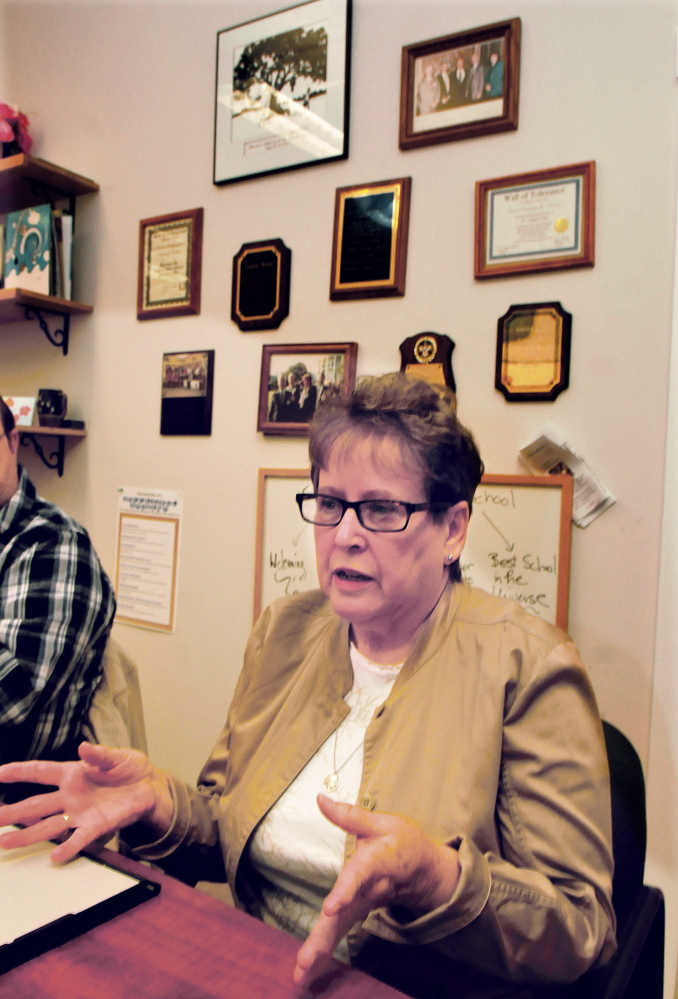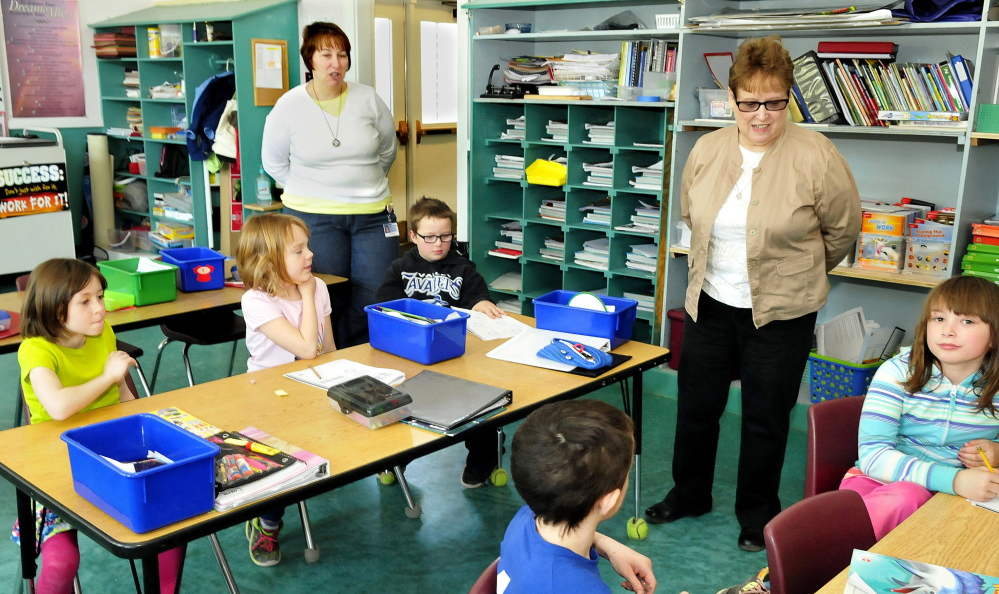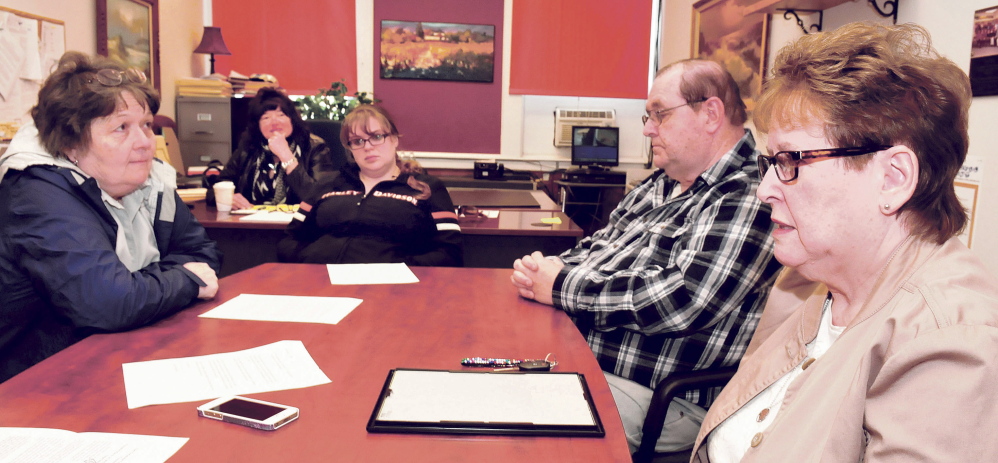BINGHAM — Since she first started teaching third and fourth grade at Moscow Elementary School in the fall of 1965, Linda Hunnewell has been a fixture in School Administrative District 13.
She has been teacher, principal, special education coordinator and school board member. She has attended countless sports competitions and school events. She has even gotten up in the middle of the night to attend to leaky pipes at the elementary school.
After nearly 50 years with the school district, she attended her last school board meeting a few weeks ago and plans to retire.
“I always liked what I was doing,” said Hunnewell, 73, of Moscow. “I got stressed out at times, I wanted to pull my hair out at times, but I always liked it. I loved being in Bingham and Moscow. I loved being here and loved raising my children and grandchildren here.”
Hunnewell grew up in Milford and moved to the Bingham area with her husband, Scott Hunnewell, in 1964. She got her first teaching job after graduating from the University of Maine at Farmington with a degree in special education. She taught third and fourth grade before switching to a position as a second grade teacher, a job she held for 17 years.
“I just couldn’t get past that grade. I loved the children at that age — their excitement for learning, the ideas they have. They just kept my energy level high. It was great,” Hunnewell said.
After just four years teaching in the district, she was promoted to a teaching principal and around 1985 became a full-time principal and special education coordinator.
She retired from being a principal in 2005, but continued to work in special education. For the last six years she’s been on the district school board, attending her last board meeting in March.
“She’s been a remarkable leader in our community,” said Julie Richard, the district-wide principal in SAD13. “One of the things I learned from her is to really think through the relationship the school has with its community and just to be cognizant of all the components that go into a family bringing a child to school. Different families struggle in many ways, and our job is to be cooperative and help them understand the value of education.”
Hunnewell said she’s seen massive changes in education and the district in everything from curriculum and standardized testing to parenting philosophies and cafeteria cuisine.
The district, which was home to as many as 500 students at one point, is down to about 200 students in grades pre-K through grade 12 because of the declining population in the two towns that make it up — Bingham and Moscow — and smaller family sizes.
Three one-room school houses in SAD 13 in Caratunk, The Forks and West Forks, where children continued to receive elementary school education up until as recently as 2000, have also closed.
“We’ve gone through many, many phases of different approaches to learning for students, and we’re still doing that,” Hunnewell said.
She said recent government pushes for more standardized testing have detracted from other things teachers can do in the classroom, but she supports the move towards increased use of technology in classrooms.
She also noted that today’s curriculum often comprises material that students years ago would not be getting to until later in their education. For example, the things a second grader is learning today are things that a third or fourth grader may have tackled years ago.
“Today’s world is much faster paced,” she said. “I think we’re not always giving children a chance to just be children.”
Hunnewell said that may be one reason for an increase in the number of special education students and students with emotional problems. She said she has also noticed differences in parenting and how parents and teachers interact.
“When I first started, I felt that no matter what the situation was, when I talked to parents I could always count on their support. I don’t think teachers get that as much anymore,” she said. “When I first started, if there was a discipline problem, you could talk to a parent to work together and come up with a solution. Today I think the attitude is — and I may be wrong — but very often the attitude is ‘It’s your problem at school, it’s my problem at home,’ and I think that’s very difficult for the child.”
After six years on the school board, Hunnewell said the decision to not run for re-election this year came during a meeting last year that took place the same night that her granddaughter, a junior at Upper Kennebec Valley Memorial High School, was playing in a basketball game in Jackman.
“I know she just has one more year left, and I felt like I was missing it,” Hunnewell said. She said she plans to be at every basketball game next year.
“I tried crocheting. Forget it. I tried knitting. Forget it. And I’m not a seamstress, that’s for sure,” she said.
A widow, Hunnewell also plans to spend more time with her family — a brother and sister, four grandchildren and two children, including a daughter, Wendy Belanger, a second grade teacher of 25 years at Moscow Elementary School.
Between the two of them, they’ve taught the parents of almost every child in Belanger’s current class.
“I still constantly ask her questions and get feedback from her,” Belanger said. “It’s nice to bounce ideas off her about how she would handle this or handle that.”
Rachel Ohm — 612-2368
Twitter: @rachel_ohm
Send questions/comments to the editors.





